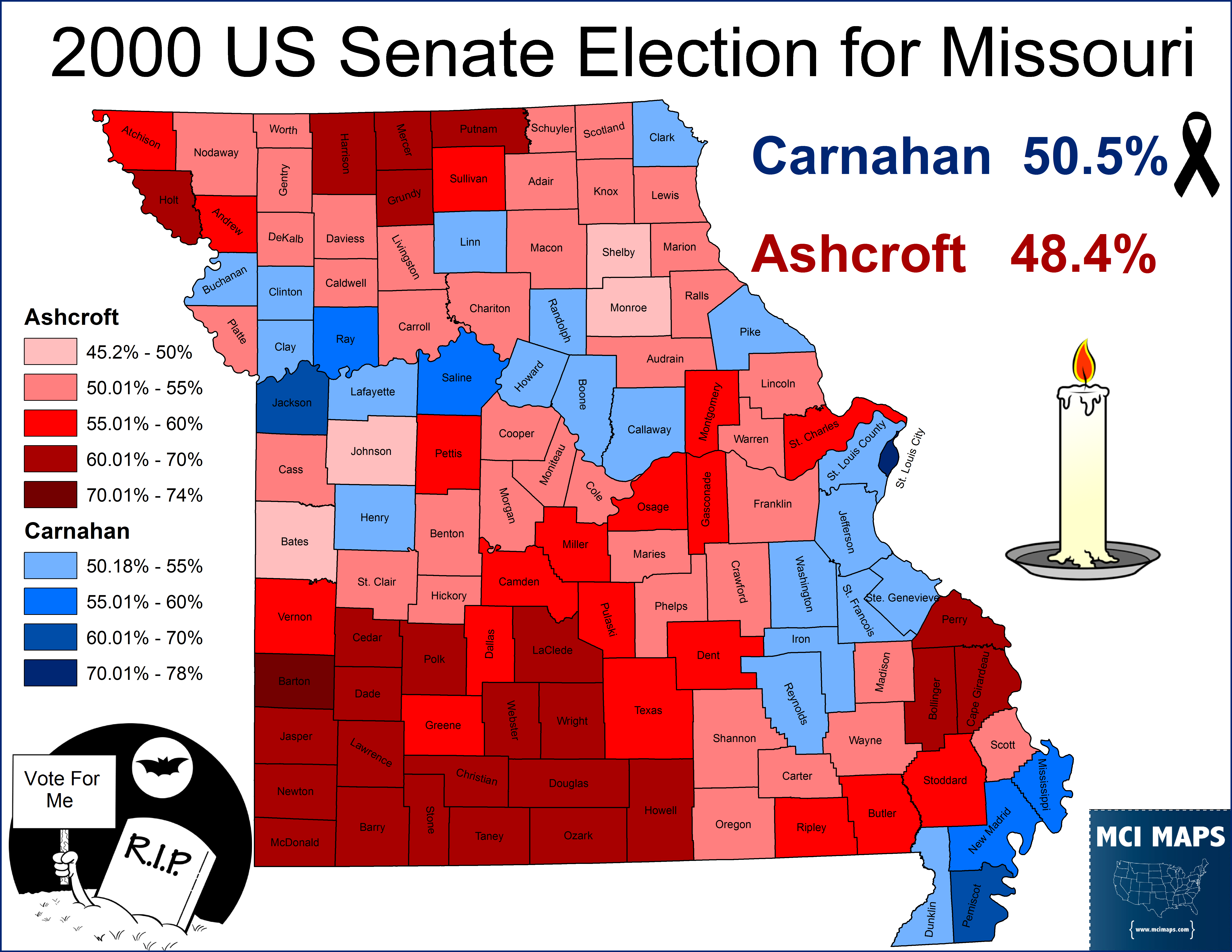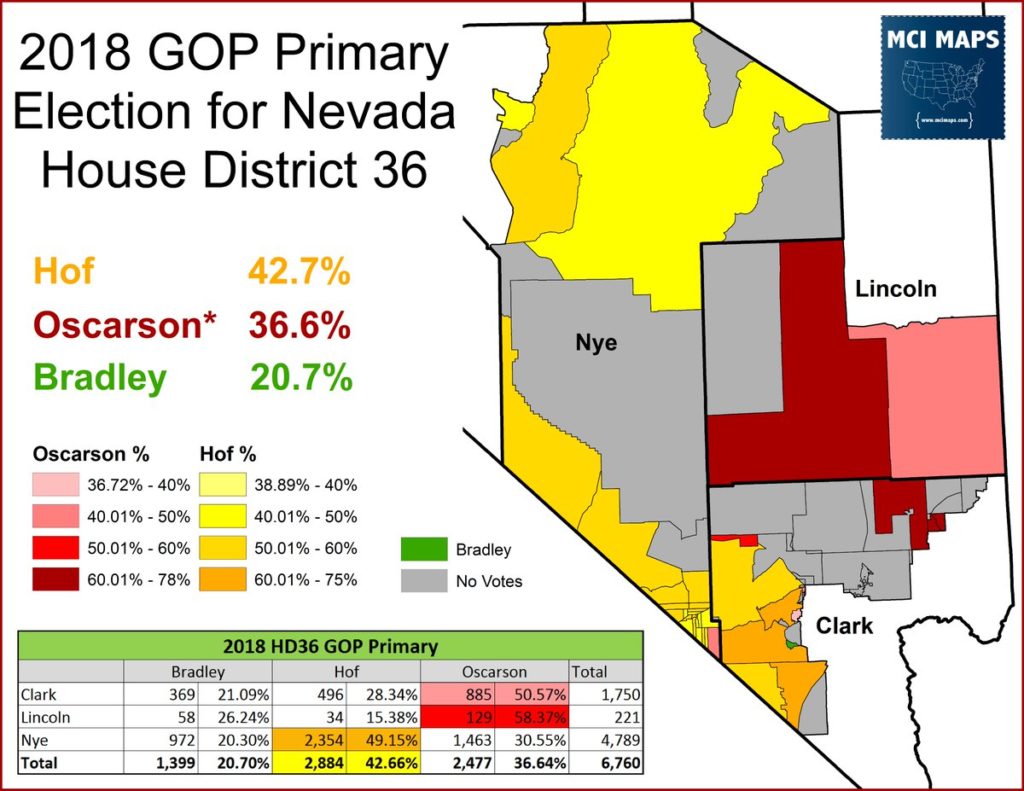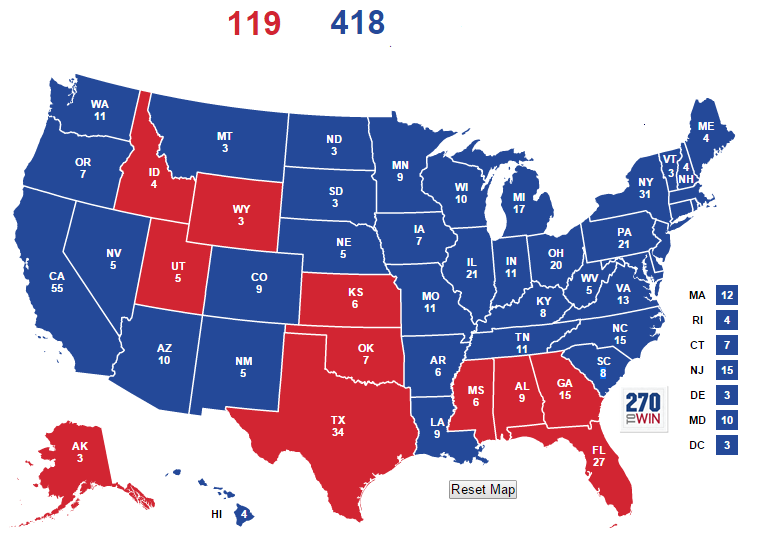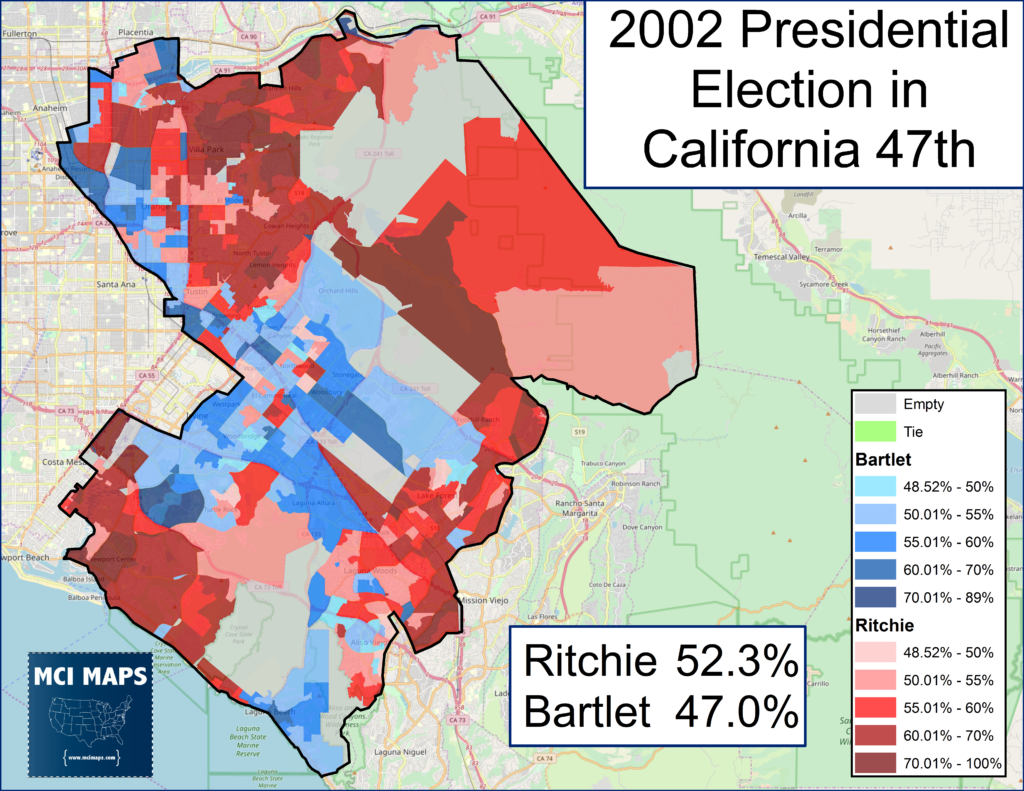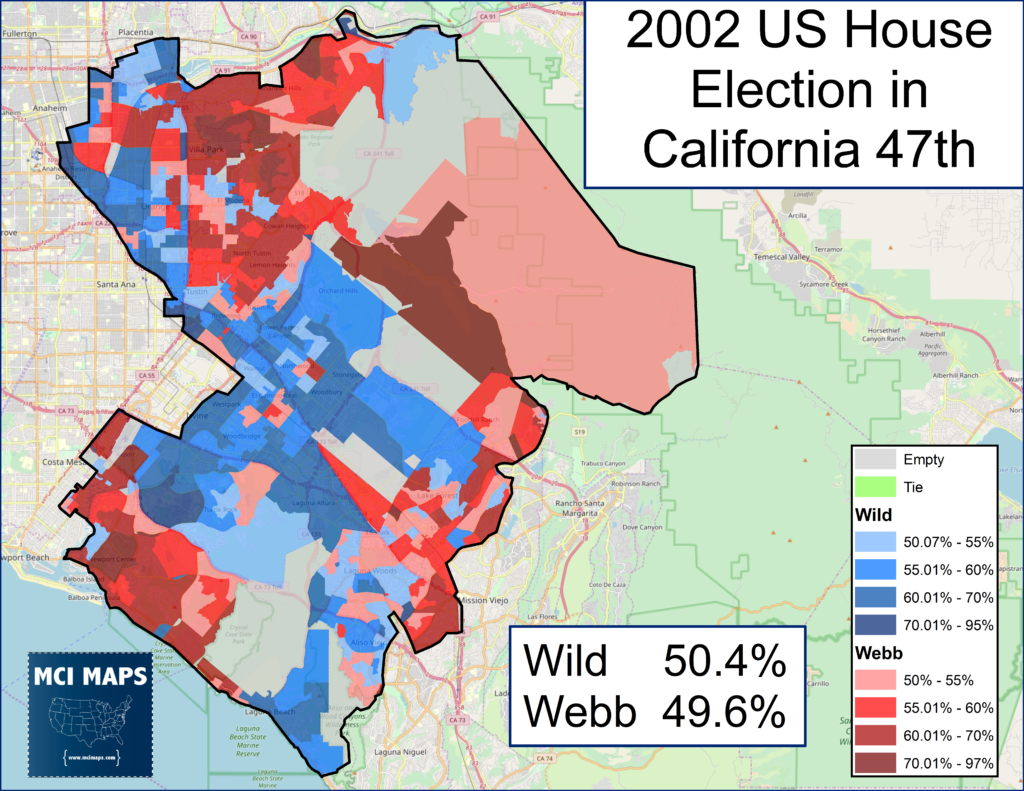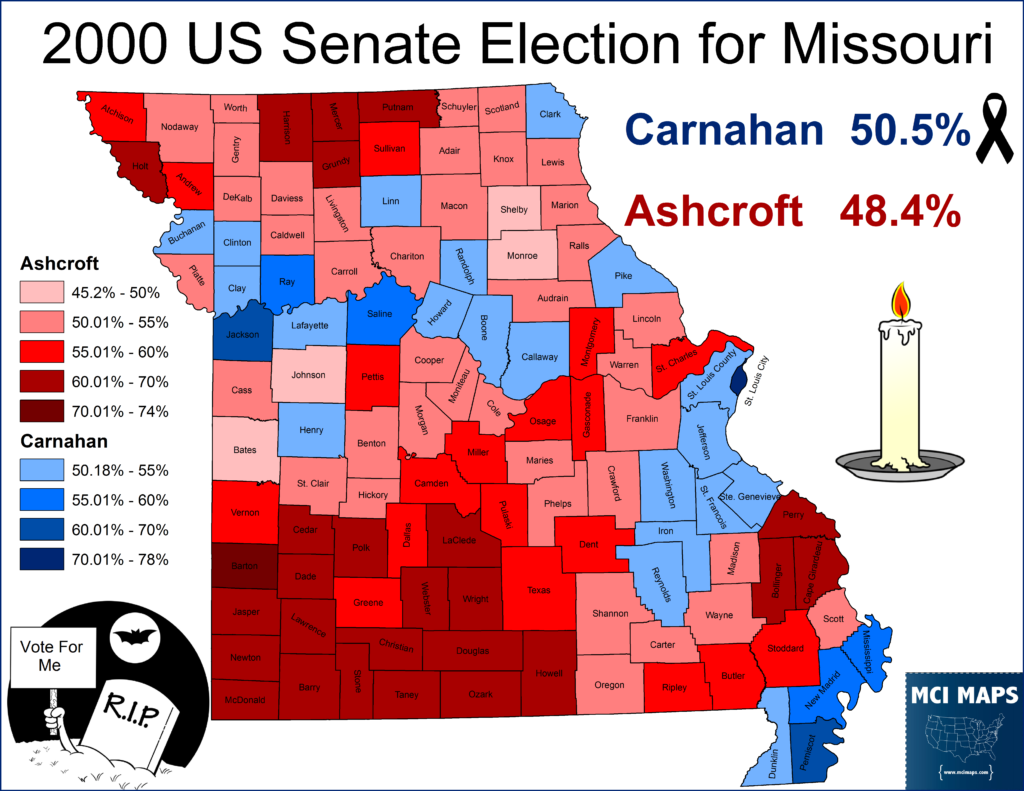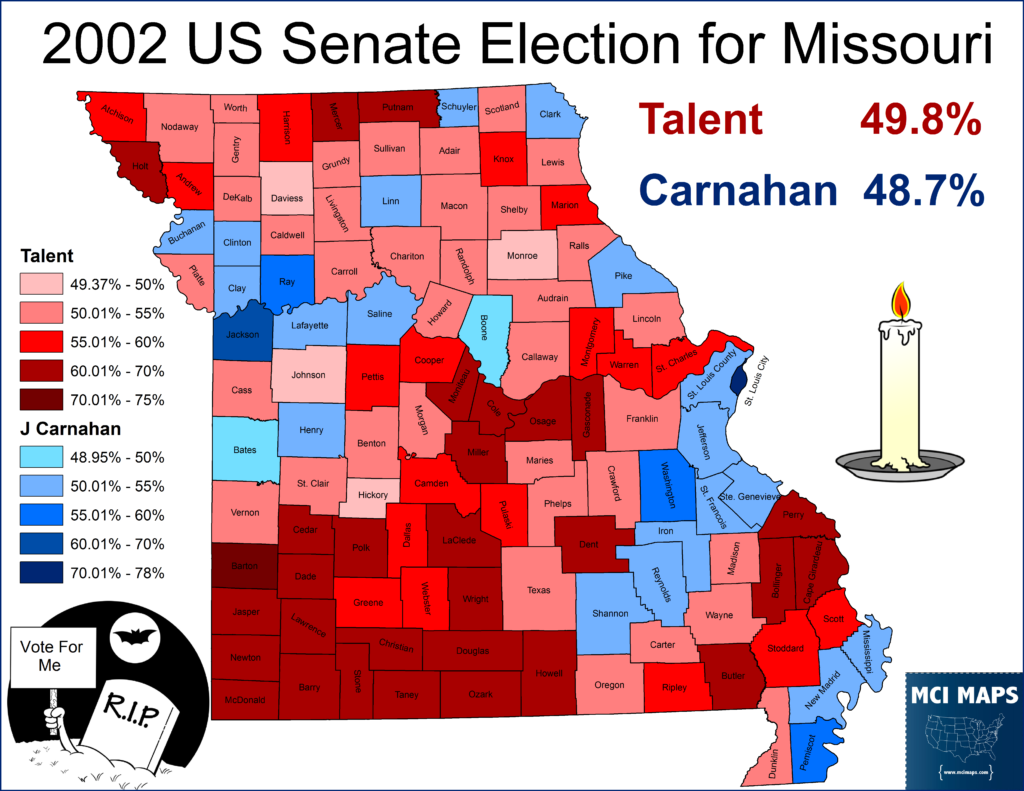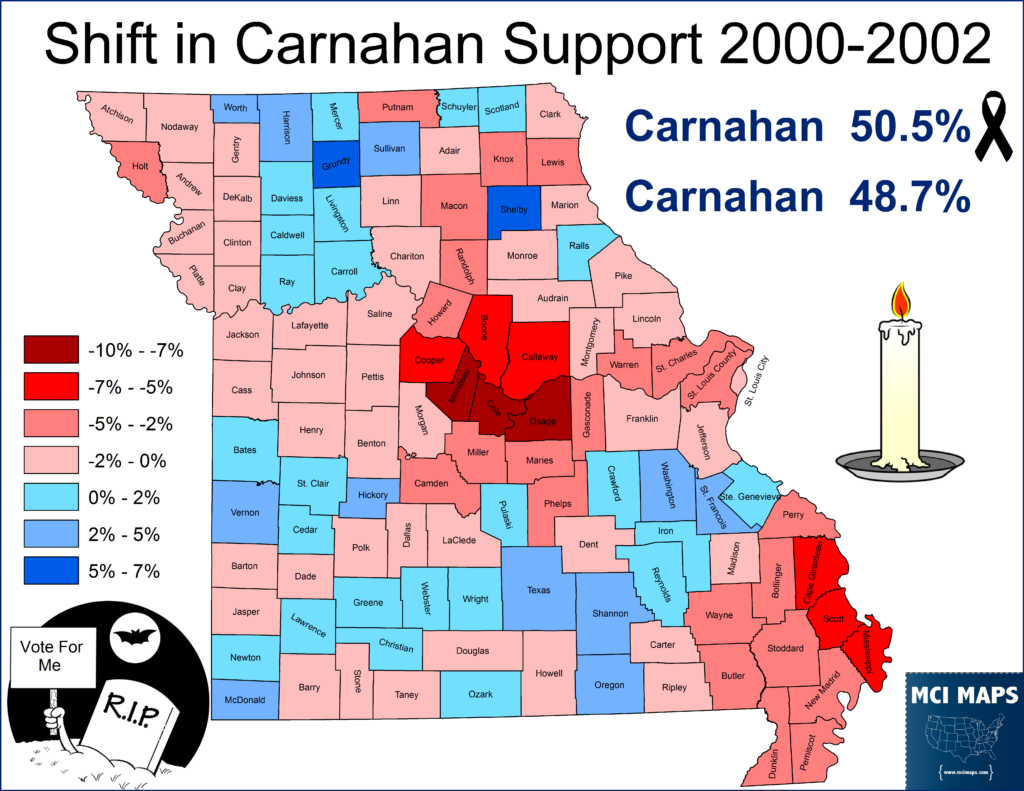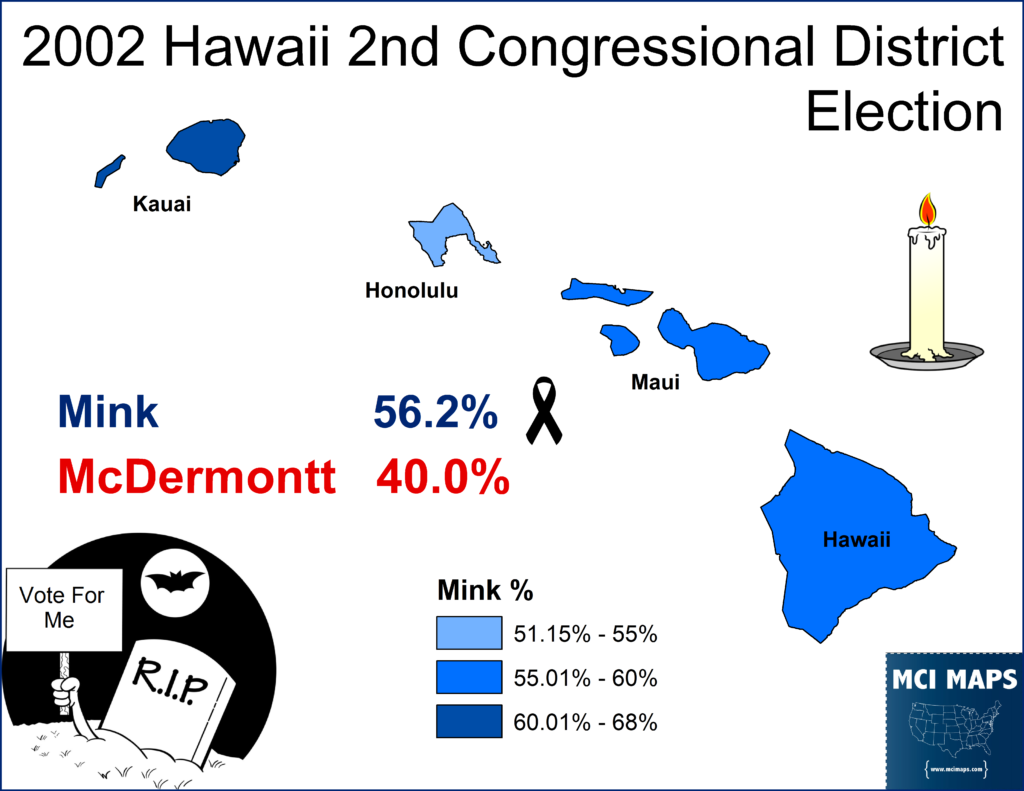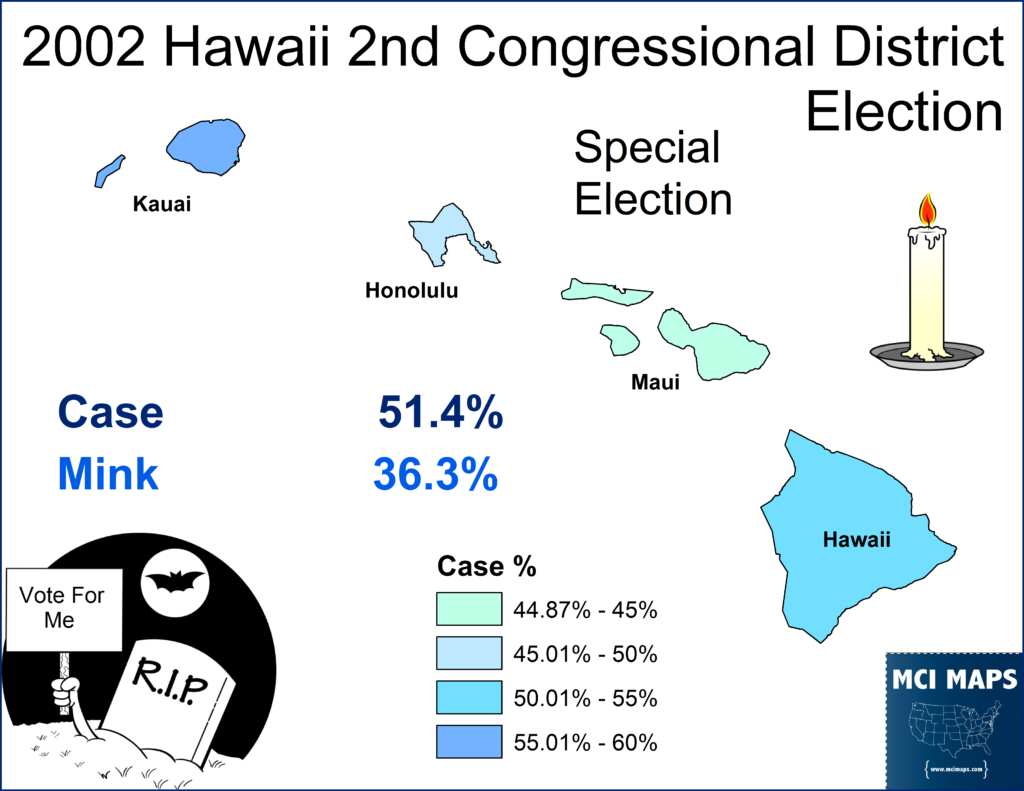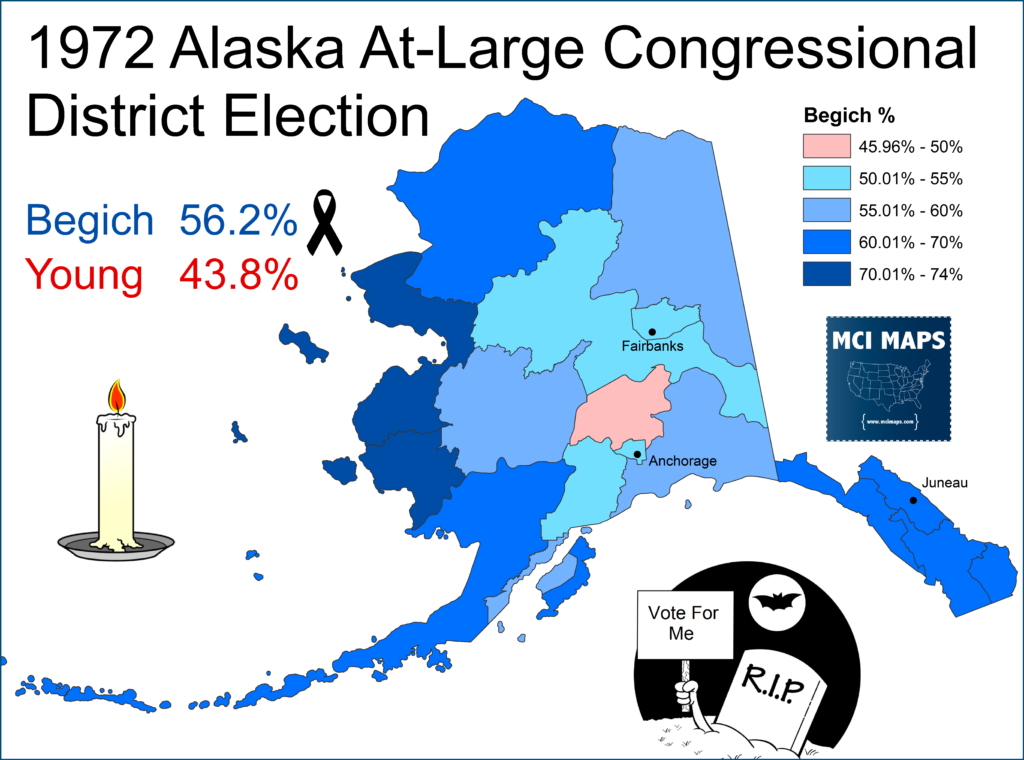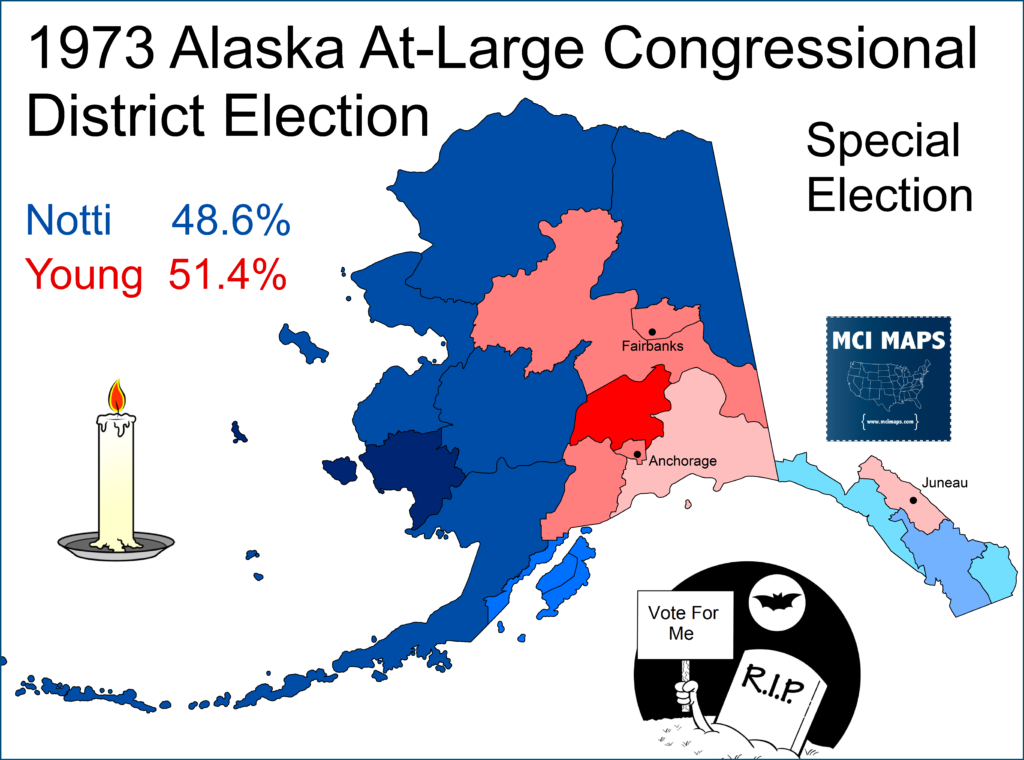In this final 2018 Halloween article, I take a quick look at the phenomenon of dead people winning elections. We have all heard stories of people sadly passing away on the campaign trail. In many states, a candidate’s death means the party for that candidate can pick a replacement. Even if the ballot still says the deceased’s name, the voter is informed that a vote for them will be transferred to the replacement. In Florida, this has happened twice this year. Republican State Senate Dorothy Hukill tragically passed away from cancer during her re-election, and Florida 17th Democrat congressional candidate April Freeman sadly passed away from a heart attack. Both races saw the respective political parties chose replacements for them, even though their names will technically be left on the ballot.
However, in other states, if someone dies during the campaign, there is no mechanism to replace them. The only option is for the campaign to continue and if the deceased wins, a vacancy is declared. NEVER is the person in 2nd just declared the winner. This has become an issue in Nevada this year. In the State Assembly race for district 36, infamous brothel owner Dennis Hof ousted a moderate GOP assemblyman and was running in the general for a safe-GOP seat. I wrote about that race here.
State republicans avoided Hof and it was expected he wouldn’t be fully welcome into the GOP caucus once he won. However, Hof died just a few weeks ago and Nevada law stiptulates it is too late to designate a replacement. Rather, if Hof wins, a vacancy will occur and the local commissions will pick a replacement from the same party. Republicans, who avoided Hof, are now pushing full-force to hold the seat; knowing a Hof win means the selection of a Republican they can get along with much easier.
Hof’s likely posthumous election sparks an interesting question – how often do dead people win elections?
“West Wing: The California 47th”
If you ever watched Season 4 of the West Wing, you remember a plot-line were a candidate for congress died but was elected anyway. In this case, a democrat, Horton Wild, was running a long-shot bid for a congressional seat in Orange County (The California 47th). After dying from a heart attack, his campaign manager kept the race going, arguing that the election was about ideas and not candidates. Wild’s campaign manager, Will Bailey, famously listed all the controversies surrounding Republican Incumbent Chuck Webb -quipping “there are worse things than no longer being alive.” The 47th (based off the old 47th used from 1992-2002) never once elected a Democrat and was a stalwart GOP district. The run, alive or dead, was considered a fool’s errand.
The same night as that election, President Bartlet was re-elected in a landslide victory in the 2002 Presidential election after thrashing his Republican opponent, Florida Governor Robert Ritchie, in the debates. Bartlet swept much of the nation and won over 400 electoral votes.
This landslide, which was apparent early in the night, depressed Republican turnout in the west coast. The result was a weakened GOP voting block in Orange County. Bartlet would still lose in the 47th, but by a narrow margin. Much of this narrow margin was due to Republicans not bothering to show up after work when the east-coast returns showed a landslide. The expected wave of Republican-aligned white collar workers ended up being mild splash.
Bartlet’s modest loss, the depressed GOP turnout, and the strong campaign run by the Wild folks, resulted in a narrow upset for the democrats.
As a result, Sam Seaborn agreed to run for the special election resulting from the Wild win. With more balanced turnout, the district returned to form and former-Congressman Webb beat Seaborn to take back the seat for the GOP. The whole saga is a fun story-line that stretches over half the season, but it is one that is very much based in reality. Not only have dead people won federal office before: it has happened more times than you probably guessed.
The 2000 Missouri US Senate Election
Certainly the most famous example of a person dying but still winning the election is Mel Carnahan in the 2000 US Senate election in Missouri. Carnahan was then-Governor of the state and was challenging incumbent GOP Senator John Ashcroft. This was one of the top democratic targets for picking up Senate seats in 2000. Three weeks before the election, Governor Carnahan died in a plane crash. Ashcroft suspended his campaign for two weeks as a result. Carnahan could not be replaced on the ballot, but Roger Wilson, the LT Gov who became Governor upon Carnahan’s death, said that if Mel won, his wife, Jean, would be picked to fill his seat. Mel Carnahan went on to win by 2% in a year were Democrats picked up multiple senate seats.
Jean Carnahan was indeed appointed to the Senate and would serve until a 2002 special election that would fill out the last four years of the term. Carnahan would actually lose re-election by 1% in a midterm that was shaped by national security and benefited the incumbent Bush administration when Republicans retook the US Senate.
The shift over two years varied by county. Jean did worse than Mel in many counties but also did better in others.
Talent would go on to lose his own re-election in 2006.
The 2002 Hawaii 2nd District Election
Just two years after Mel Carnahan passed away on the campaign trail, another death would fall upon an incumbent office holder. Congresswoman Patsy Mink had a storied career. She was the first non-white woman elected to Congress, co-authored Title IX, served in the Carter administration, served on the Honolulu City council, and served in congress again until she died from pneumonia. After her passing, right before the Hawaii primary, she could not be removed from the ballot. She won her primary and was set to be the candidate for the general election. She won re-election by 16 points, taking all four Hawaii counties.
Her victory triggered a special election for the remainder of her term. Late 2002 special election (literally to just fill that last few weeks) was won by Democrat Ed Case, who beat Mink’s widower, John Mink, by a 15 point margin. The election featured all candidates of all parties running on one ballot.
Case had strong name ID from a failed Governor run earlier that year. He would go on to win another special election for the 2002-2004 term; which John did not run for.
1972 Alaska At-Large Congressional Election
One of the oldest examples of someone winning a federal election despite being dead is from 1972. A plane carrying Alaska Democratic Congressman Nick Begich and Louisiana Democratic Congressman Hale Boggs disappeared over Alaska in mid October. To this day their bodies have never been recovered but both are presumed to have died in a crash. Boggs was unopposed for re-election but Begich was in a race with Republican Don Young. Despite Nixon easily taking the state, Begich won re-election by a comfortable margin.
The special election in 1973 saw Young face off against Democrat Emil Notti, of the Alaska Federation of Natives. The race fell along some fairly stark lines, with Young taking the cities and Notti dominating in the native Alaskan districts that make up the northern border of the state.
Young has held the seat ever since.
Conclusion
There are just three of the most prominent examples of dead people winning offices. This morbid, yet intriguing, event has happened in several local elections and in a 1962 congressional race well. What really stands out from these three races is that in all instances the special elections resulted in a loss for the person selected to carry on the deceased’s legacy. Spouses to Carnahan and Mink lost, as did the candidate for Begich’s political party. Looks like voters, while willing to elect the dead, don’t carry as much sympathy over to the next election.

